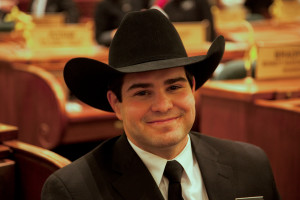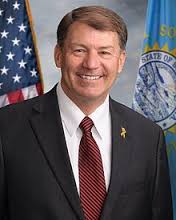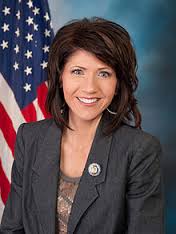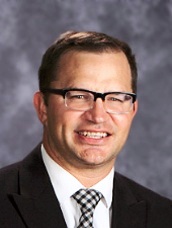
Week 3 is complete. It was filled with committee work, bill filings and introductions. The unlimited bill introduction deadline has passed, and as you are reading this the final 3-bill introduction rule of February 2nd is upon us. This means that after the unlimited bill introduction deadline, each legislator is only allowed to submit three more bills for consideration before the February 2nd deadline. So far there have been 268 bills filed.
In Senate State Affairs this week we heard HB 1069, which is the bill that would repeal Initiated Measure 22 that was passed by a majority of voters on the ballot in November. IM 22 is the South Dakota Government Accountability and Anti-Corruption Act that sought to limit lobbyist gifts, create a publicly funded campaign system, reform campaign finance, and set up an ethics commission. A lawsuit was filed, mainly by legislators, and they were granted a preliminary injunction so IM 22 is currently enjoined by our court system. The courts have not made a final ruling on IM 22, and it is subject to a trial and appeal. As a legislature, the first three weeks of session have been dominated discussions on this measure.
We need to do whatever we can to make sure that state government works efficiently and effectively for all the citizens of South Dakota by ending old and preventing new corruption and conflicts of interest. I believe that making state government work better for all South Dakotan’s begins with listening to the voters when they speak at the ballot box. That is why I am opposed to the complete repeal of the voter-approved Initiated Measure 22, which passed by over 52% of the vote. I will do all that I can to make any needed clarifications and corrections to this law, but I want to be clear that it has not been ruled unconstitutional like some members of the legislature have claimed. A preliminary injunction has been granted, but that is in no way a final ruling on this measure. IM 22 deserves to have its day in court and should follow appropriate legal channels. It is clear that the public is demanding more transparency in state government, campaign finance reform, and strong conflict of interest laws. We should respect that demand.
One of the most frustrating parts of this process over the last three weeks has been the unprecedented urgency and extraordinary measures used to railroad the repeal of IM 22 as quickly as possible. Because it is currently enjoined, it will not take effect until it has finished its journey through our court system. Thus, the speed and unfamiliar legislative procedure appear to me only as a way to usurp the will of the voters and end the inconvenience of new campaign finance rules for legislators. Even if you did not vote for IM 22, we should all be concerned about these questionable tactics, as they are an example of exactly the reason why voters are asking for more transparency in state government.
HB 1069 also has an Emergency Clause attached to it, which means if passed it goes into effect immediately instead of July 1st like most new laws. By doing this, there is no option for opponents of this measure to gather signatures and refer it to a vote of the people. I see no other reason to put an Emergency Clause on this bill other than to take away the peoples’ voice in this discussion, and I believe it is an unconstitutional use of the Emergency Clause function per Article III § 1 of the SD Constitution
While I agree IM 22 was not perfect—few bills or ballot measures are—perhaps if the legislature had passed the ethics legislation and campaign finance reform measures proposed in the past several years instead of killing the reforms on party-line votes, South Dakotans might not have felt the need to pass IM 22.
Finally, the last big issue I have with this process is that many of the sponsors of HB 1069 are also the same legislators that filed the lawsuit against IM 22. These legislators are voting on a bill that would repeal a law that they filed a lawsuit to strike down. If IM 22 is repealed by the legislature, then that lawsuit is null and void. To me, there is no better example of a conflict of interest. The legislators that are plaintiffs in this lawsuit should recuse themselves from voting on IM 22.
I have introduced several bills to address issues in our district and on behalf of members of our district. SB 110 would create a teacher tuition reimbursement program for teachers committing to teach in a rural area for three years. SB 111 would provide increased support for child care costs for working families. SB 112 would allow school boards to refer their decision on a four or five day school week to a vote of the people. HB 1094 would allow landowners to transfer two deer hunting licenses from immediate family to another South Dakotan. I will submit a bill this coming week to create a pilot program for state funded Pre-K education, as we are one of only five states that do not offer state support for Pre-K education. I will also be introducing a bill to fix the school funding formula for schools that were affected by declining enrollment, which I feel is a top priority.
As a legislature, we often spend far too much time on “fringe issues,” and we need to get back to more discussions on how we grow and support rural South Dakota economic development. I am working on several measures that will do just that by putting the focus back on rural South Dakota. A couple examples of this are fully funding the Building South economic development program that focuses on the rural housing crisis, as well as Career and Technical Education at the high school level. I am also working on increasing funding for South Dakota’s Needs Based Scholarship program, which will help our high school students in low to moderate income families attend college. Increased support for child care costs and Pre-K education will also go far in keeping dollars in your pocket. Child care costs have gotten out of hand, and our current system is forcing people to stay at home to take care of kids rather than joining our workforce.
All of these proposals are being funded with dollars currently available in our budget, by cutting wasteful spending and putting our priorities where they belong. No tax increases are necessary for any of these programs. Our number one goal at this point should be making sure that working families are getting ahead, especially since our number one industry—agriculture—is going through hard times.
I encourage anyone to contact me with questions, concerns, and new ideas on how we can improve South Dakota as we move through the legislative session. It is an honor to be your Senator, and I will continue working hard for all of you and for the great state of South Dakota.
sen.sutton@state.sd.us
605-830-5540









